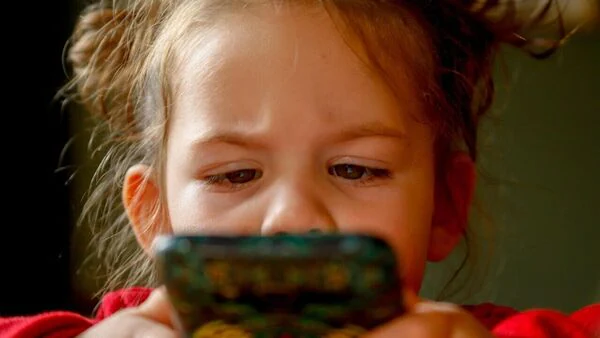
Late-Night Call With A Child Prompts Haryana DGP To Share Lesson On Screen Time Awareness: 'Let Kids Grow With...'
In a now-viral post, the Haryana DGP shared that he had recently received a late-night call, which“turned out the caller's child had dialled by mistake.”
“Phones teach quick swipes, not slow smiles,” he told the child before hanging up.
Also Read | Phones for kids under 13 'shape the way they think': Experts 'Let kids grow with mud on hands, not...'OP Singh shared screenshots of the WhatsApp chat he had with the child's father and a YouTube link of the impact of too much screen time for kids, by Dr Rachael Sharman.
“Let kids grow with mud on hands, not glass in palms,” he said, using hashtags like Parenting, Digital Detox, and Screen Time Awareness.
He also shared three major mental health effects of excessive screen time on kids, including the increased risks of depression and anxiety:
Also Read | Parents struggling with kids' screen time may finally get relief with iOS 26 Increased risk of depression and anxietyHaryana DGP said that excessive screen time is directly linked to increased risks of depression and anxiety, particularly linked to video gaming and night-time screen use, which disrupts sleep and activates brain reward pathways associated with attention deficit/hyperactivity disorder (ADHD) behaviours.
Emotional and behavioural problemsOP Singh noted that screen time is also linked to emotional and behavioural problems, such as aggression, low self-confidence, social anxiety, and difficulties in peer relationships; often creating a cycle where children use screens to cope with these challenges, further worsening their symptoms.
Impaired emotional regulationIn the viral post, the DGP also said that increased screen time can decrease social coping skills, impair emotional regulation, and lead to developmental delays in language, cognition, and social skills, particularly when screen time replaces face-to-face interaction and outdoor play.
“Limiting screen exposure and encouraging real-world socialisation is crucial for healthy mental development,” he said.
Also Read | What is screen time doing to children?He concluded with a Hindi quote saying,“There is no network stronger than bones - connect children with nature, not with screens.”
Legal Disclaimer:
MENAFN provides the
information “as is” without warranty of any kind. We do not accept
any responsibility or liability for the accuracy, content, images,
videos, licenses, completeness, legality, or reliability of the information
contained in this article. If you have any complaints or copyright
issues related to this article, kindly contact the provider above.


















Comments
No comment